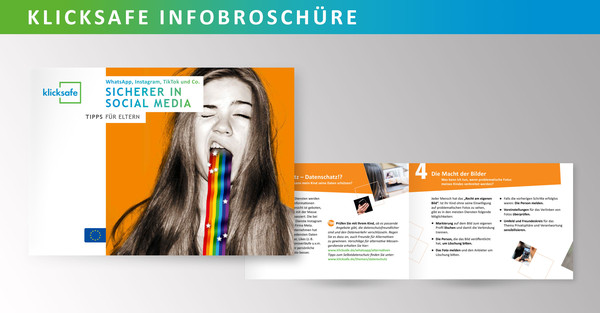What are social networks?
People from all over the world meet in social networks. The many networking opportunities fascinate adults, young people and children. They exchange information about hobbies, common interests and much more. But what exactly is it about social media that fascinates young people in particular? And what prompts them to disclose information about themselves, some of it very personal?
Young people in particular are eager to present themselves. After all, their interests and social environment represent their personality. And this, in turn, earns them recognition from others. Social media help young people in this respect and support them in coping with developmental tasks. In the mostly adult-free spaces, young people can also try things out for themselves. They often don't have to fear parental judgment or sanctions.
In a very short time and without much effort, young people can try out identity models in social networks. The platforms are thus used in terms of identity management processes. For most young people, it is important to be authentic and at the same time "come across" as cool, sexy, serious or funny as possible.
Social media are multi-functional. Thanks to the various ways they can be used, they appeal to almost every mood. If you're in a "no mood" mood, you can simply click through profiles or groups, use applications, and much more. If you're in the mood for action, you can get active, i.e. communicate and arrange meetings. Ultimately, as in real life, there is also a "peer pressure" that young people like to bow to in order to compete in their social reference group. If almost all of their friends are registered on a social network, the young person naturally has to try it out as well. Otherwise, he or she runs the risk of no longer being "up to date.
Tips for parents
Often, disputes among friends or a problematic class situation are behind bullying attacks. Talk to your child and, if necessary, inform the teacher in order to find a solution together.
In general, children and young people should break off contact immediately if the chat partners' questions become unpleasant or they feel pressured. Advise your child at an early stage never to meet an online acquaintance alone.
Everyone has the "right to their own image". Images that are posted without the consent of the person depicted can be reported or deleted. In the worst case, criminal action can also be taken against them.


